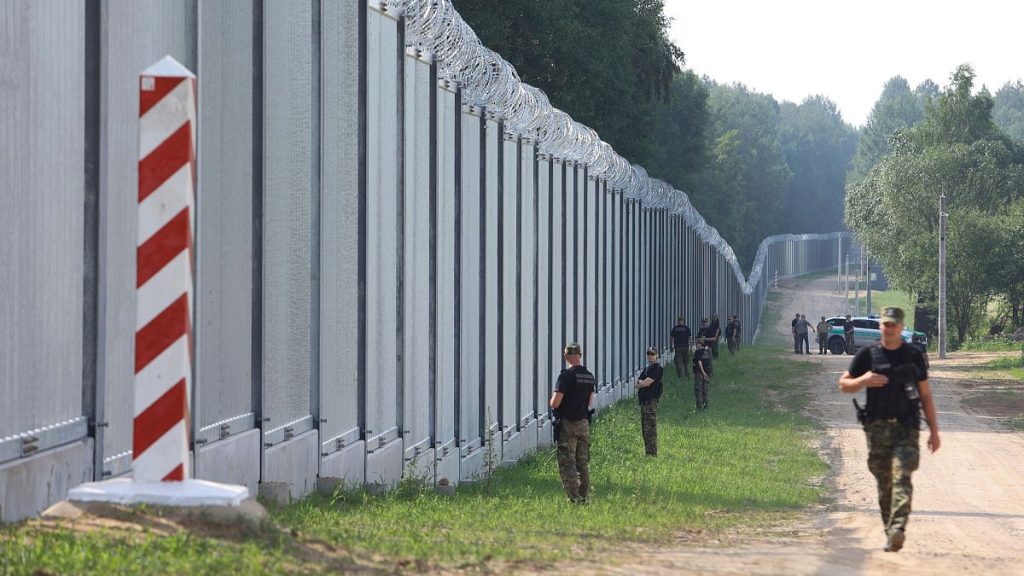The Polish border with Belarus has been a site of conflict between law enforcement and migrants travelling eastwards, and Germany’s decision to impose temporary border checks has put Poland under further pressure. Polish Prime Minister Donald Tusk has announced a plan to temporarily suspend the right to apply for asylum in his country, a move that has been criticized by NGOs both in Poland and abroad. The strategy proposed by Tusk’s Civic Coalition party includes limiting the number of people who can apply for a visa, making it harder to obtain a Polish passport, and introducing programs to help migrants better integrate into Polish society. The European Commission has warned that the proposal to suspend the right to submit asylum applications could be unlawful.
The crisis at Poland’s border with Belarus has seen thousands of people attempting to cross into Poland through thick forests, often in harsh winter conditions. Tusk has emphasized that his government does not intend to terminate international agreements that guarantee the right to asylum but believes that the current rules are inadequate in situations threatening national security, such as the border with Belarus. NGOs argue that the proposed measures will do little to address the issues along the border, where both deaths and brutal pushbacks of refugees and migrants have been reported. The government’s strategy includes giving more powers to border guards, allowing them to detain foreigners at the border deemed a threat to Poland’s safety.
Tusk stated that the Polish state has lost control over the wave of illegal migration, citing figures on temporary visas issued by Poland. However, the number of people successfully applying for asylum into Poland via the Belarusian border is relatively low. Some NGOs fear that the proposed measures could force people to attempt to cross the border in an unregulated and dangerous way. This could also lead to Germany becoming the de facto first safe country in the EU for asylum seekers, creating a longer and more perilous journey for those moving eastward. NGOs and humanitarian workers express concerns about the increased risks faced by asylum seekers turned away at the border, as they become vulnerable to human traffickers.
Amnesty International has criticized Tusk’s proposal, stating that it endangers the rights of migrants who may have been subject to violence, trafficking, or lured to EU borders under false pretenses. The government has assured that those with legitimate asylum claims would still be treated favorably and could receive temporary stays on a humanitarian basis, but further details on implementation are yet to be provided. Tusk has been critical of other countries’ border strengthening measures and believes that Germany’s decision to introduce border checks will create unnecessary obstacles for legitimate travelers. Migration is a key topic at the European leaders’ summit in Brussels, with focus on Italy’s plan to send migrants to offshore processing centers in Albania gaining attention.
NGOs working at the Poland-Belarus border argue that tightening measures will not deter people from attempting to cross and could instead make the process more dangerous. Reports highlight the risks faced by migrants staying at the border for prolonged periods, as they become vulnerable to human traffickers. The proposal to suspend the right to asylum applications at the border has raised concerns about potential human rights violations and increased risks faced by asylum seekers. The government’s plan to give more powers to border guards has been criticized for potentially leading to abuse of existing laws at the border. The EU summit is set to address migration issues, with differing approaches and concerns raised by various European countries.


